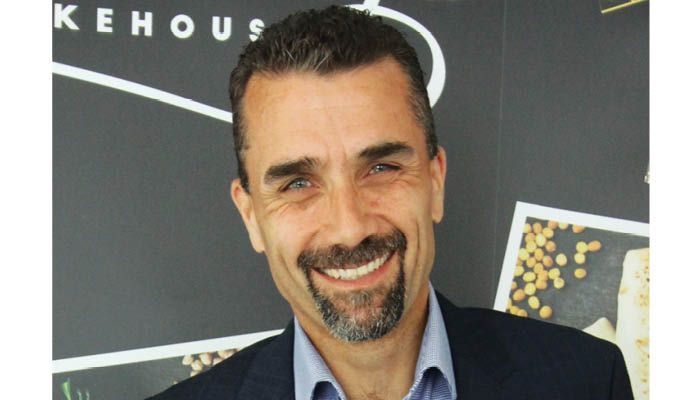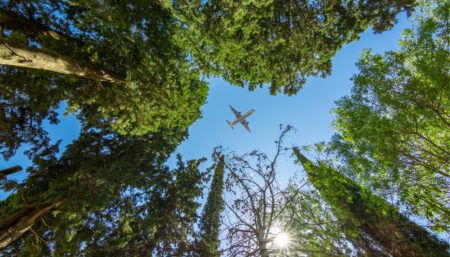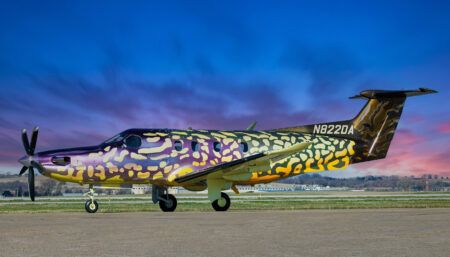Ahead of his participation as a speaker at World Travel Catering & Onboard Services Expo’s Taste of Travel Theatre, Matt Crane, founder of the Aviation Sustainability Forum (ASF), discusses cabin waste across the aviation industry, and what can be done about it.
Can you give an idea of the scale of cabin waste in aviation?
The Aviation Sustainability Forum (ASF) Audits estimate that the aviation sector is generating 3,600,000 tons of cabin and catering waste each year, and this is set to double by 2050 as passenger numbers increase from 4.5 billion today to around 10 billion a year by 2050.
What are some of the challenges involved in tackling this?
Flight times, menus and flight duration are all constantly changing variables which make tracking and tackling cabin waste difficult. Solutions start with data and understanding the problem airlines and caterers are trying to solve. The aviation sector needs a standard, cost-effective method of auditing cabin waste composition on an ongoing basis to track the effects of service changes, waste reduction and circularity solutions, and the ASF is developing a standard audit protocol.
International Catering Waste Regulation (ICW), which stipulates that all cabin and catering waste that is contaminated with food must be sent to deep landfill or incinerated, is a brake on circularity. But ICW regulation cannot be used as an excuse for inaction – there is still so much we can do as a sector to reduce waste levels in the first place and capture uncontaminated recyclables.
What improvements could be made to food packaging?
Regulation is also informing change by the aviation sector. Single-use plastic (SUP) bans and the pending 2030 EU-Packaging & Packaging Waste Directive are two examples. Regulation of this kind stems from non-aviation HORECA [hotel/restaurant/catering] sectors and does not consider the lightweighting of materials by airlines to reduce weight and associated flight path fuel burn.
Airlines and caterers are therefore constantly looking for packaging materials that meet regulation requirements, are lightweight and offer the same protection to the food, beverage and amenity cabin services offered to passengers. Aviation is therefore often and needs to be one of the first adopters of innovative packaging solutions.
Do services need to be redesigned?
There is scope for service redesign and for aircraft interior redesign. For example, most untouched food and beverage waste comes from business- and first-class cabins where choice is seen as part of the passenger experience. If premium passengers could be educated to the environmental importance of pre-order, and pre-order positioned and made to be part of the passenger experience, this food waste could be radically reduced, and the money saved reinvested into an even better service experience.
Interior aircraft design could have a radical effect on the sustainability of the passenger experience – for example, revised galley design would assist crew in pre-segregating recyclable materials.
What other potential solutions do you propose?
Recycling waste depends on scale. Cross-sector collaboration on recycling programmes would ensure the sector got to scale on waste collection where waste levels at individual catering units on aircraft offload is low. For example, the sector sends to landfill or incineration tons of economy headsets every year. If these could be collected once or twice a year in the belly of scheduled flights and brought back to locations where recycling exists, valuable and rare metals could be recovered instead of leaching into the environment.
Is there anything else you’d like to add?
We should be optimistic. Aviation has solved some of the toughest problems known to man – the invention of the jet engine, new lightweight aircraft engine and mainframe materials, night navigation, the autopilot, to name a few. By comparison, solving cabin waste is a walk in the park. What we need is visionary leadership, drive, commitment, and most of all cross-sector collaboration. With this we can solve the issue of cabin waste well before the sector’s stated net-zero target of 2050. We just need to make it a priority and do it.
All airlines and caterers that want to take part in the ASF Cabin Waste Composition Audit Program or want to learn more about the ASF’s work should contact the ASF at info@aviationsustainabilityforum.com.
Matt Crane, founder of the Aviation Sustainability Forum (ASF), will be speaking at WTCE’s Taste of Travel Theatre, sponsored by En Route, in Hall A1 at 14:30 to 16:15 on 28 May 2024 during the session ‘The Growing Issue of Cabin Waste and What’s Needed to Solve It’.
For more information on WTCE 2024 and to register to attend, click here.





